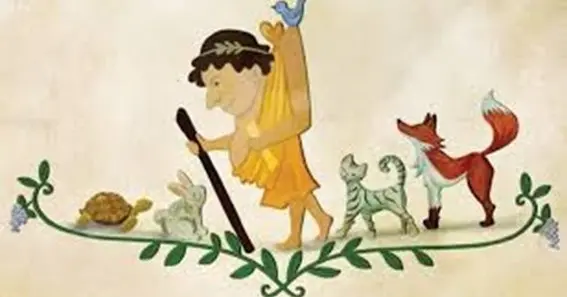Langston Hughes, a central figure in the Harlem Renaissance, is renowned for his profound and insightful poetry that often reflects on African American experiences. While Hughes’ extensive body of work covers a wide array of themes, there is no well-documented poem by him that directly reinterprets the classic fable “The Boy Who Cried Wolf.”
The Classic Fable: “The Boy Who Cried Wolf”
Originating from Aesop’s Fables, “The Boy Who Cried Wolf” tells the story of a shepherd boy who repeatedly deceives villagers by falsely claiming a wolf is attacking his flock. When a wolf eventually appears and the boy calls for help, the villagers, thinking it’s another false alarm, do not come to his aid, leading to dire consequences. The moral underscores the loss of trust that habitual liars suffer, even when they speak the truth.
Also Read N: FuteMAX: Comprehensive Guide To Free Live Football Streaming
Langston Hughes’ Exploration of Truth and Deception
Although Hughes may not have a specific poem retelling “The Boy Who Cried Wolf,” his works frequently address themes of truth, trust, and societal deception. For instance, in his essay “The Negro Artist and the Racial Mountain,” Hughes emphasizes the importance of authenticity in artistic expression, implicitly warning against the dangers of conforming to societal expectations at the expense of one’s truth.
Also Read P: Is ‘Stupider’ A Word? Understanding Comparative Forms Of ‘Stupid’
Cultural Significance
Hughes’ writings often reflect the African American struggle for identity and truth in the face of systemic oppression and societal falsehoods. His emphasis on genuine self-expression can be seen as a broader commentary on the perils of deceit, aligning with the moral lessons of fables like “The Boy Who Cried Wolf.”
Conclusion
While there is no direct poem by Langston Hughes titled “The Boy Who Cried Wolf,” his literary contributions extensively explore themes related to truth and deception. Understanding Hughes’ perspective provides a deeper appreciation of the moral lessons found in classic fables and their relevance to societal and personal integrity.
FAQ
- Did Langston Hughes write a poem titled “The Boy Who Cried Wolf”?
- There is no well-known poem by Langston Hughes with this title.
- What themes does “The Boy Who Cried Wolf” address?
- The fable addresses the consequences of lying and the loss of trust that ensues.
- How does Langston Hughes explore themes of truth in his work?
- Hughes emphasizes authenticity and the importance of truthful self-expression, particularly in the context of African American experiences.
- What is the moral of “The Boy Who Cried Wolf”?
- The moral is that habitual liars are not believed even when they tell the truth.
- Where can I find more information on Langston Hughes’ works?
- The Academy of American Poets provides comprehensive resources on Hughes’ poetry and essays.
By examining Langston Hughes’ body of work, readers can gain insights into the complexities of truth and deception, themes that resonate with the timeless lessons of fables like “The Boy Who Cried Wolf.”
Read a fascinating piece here futemax










